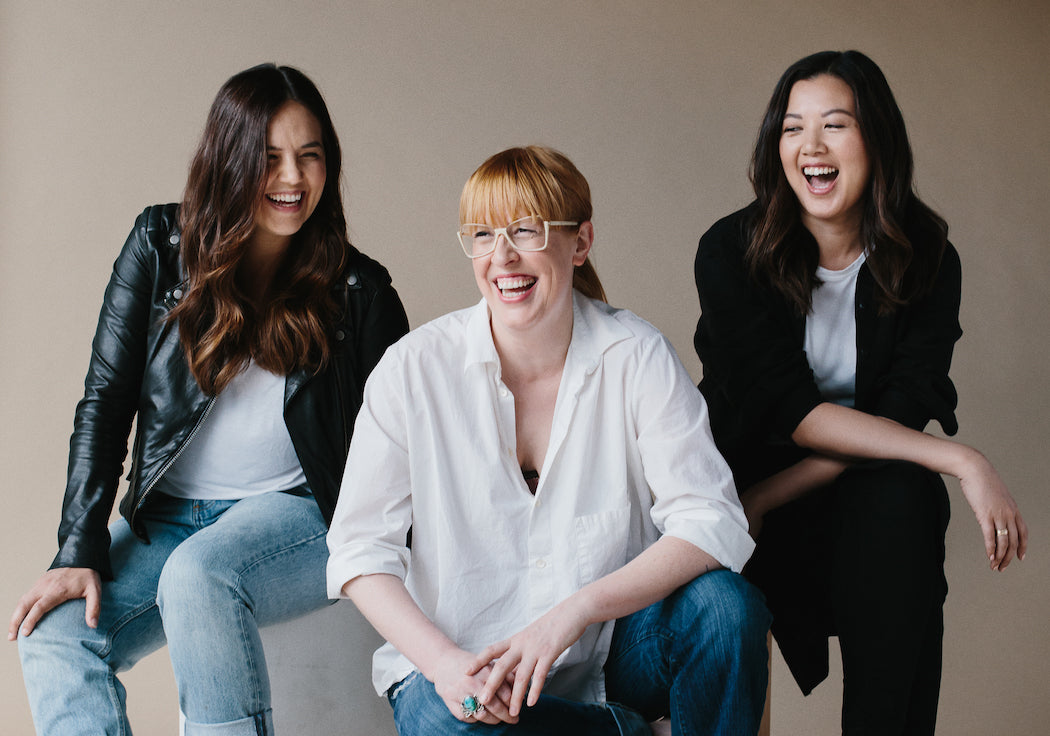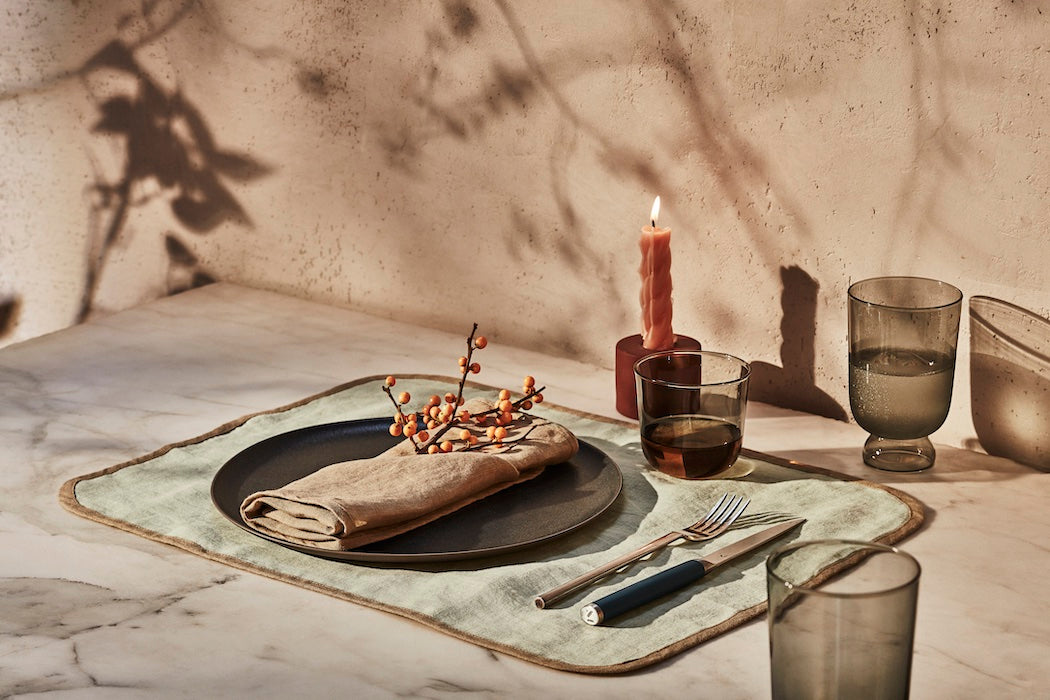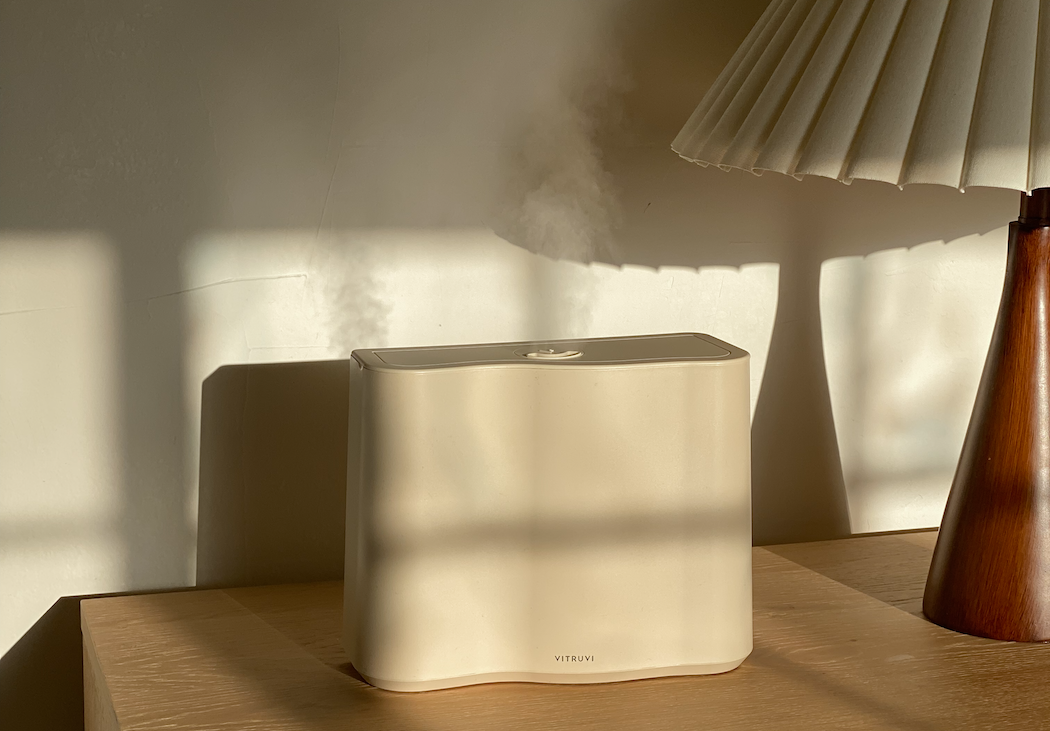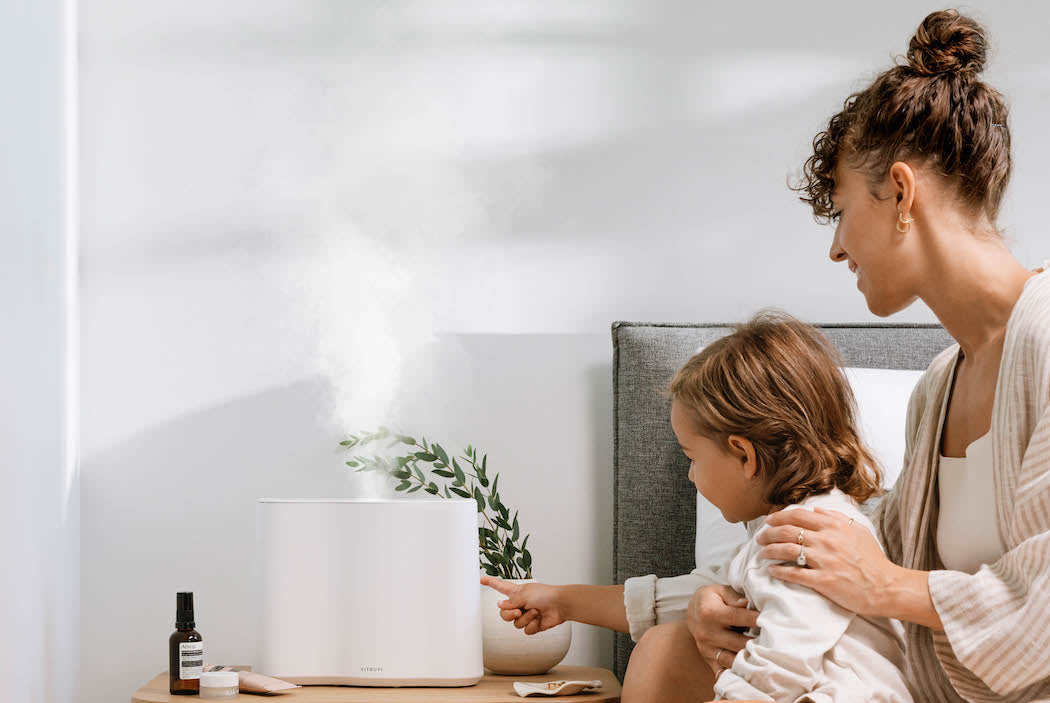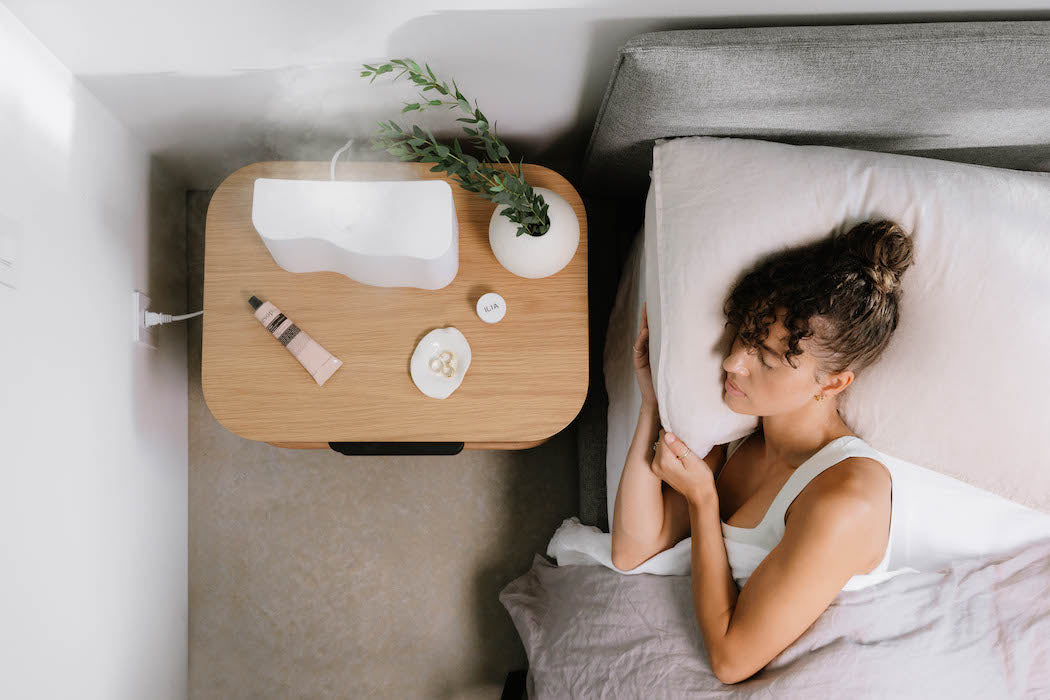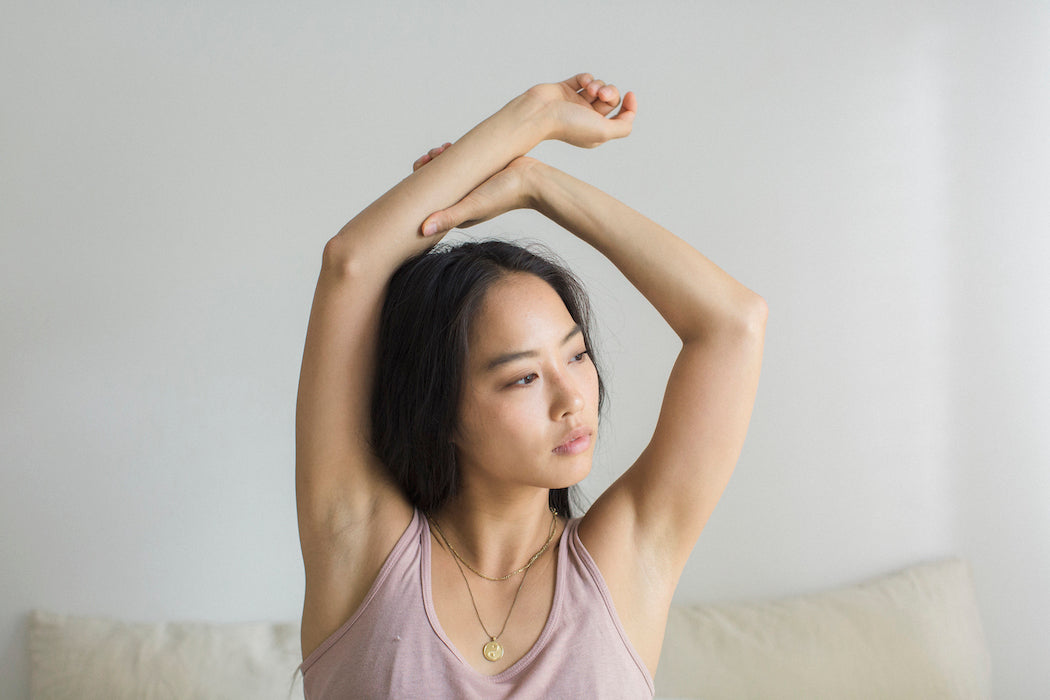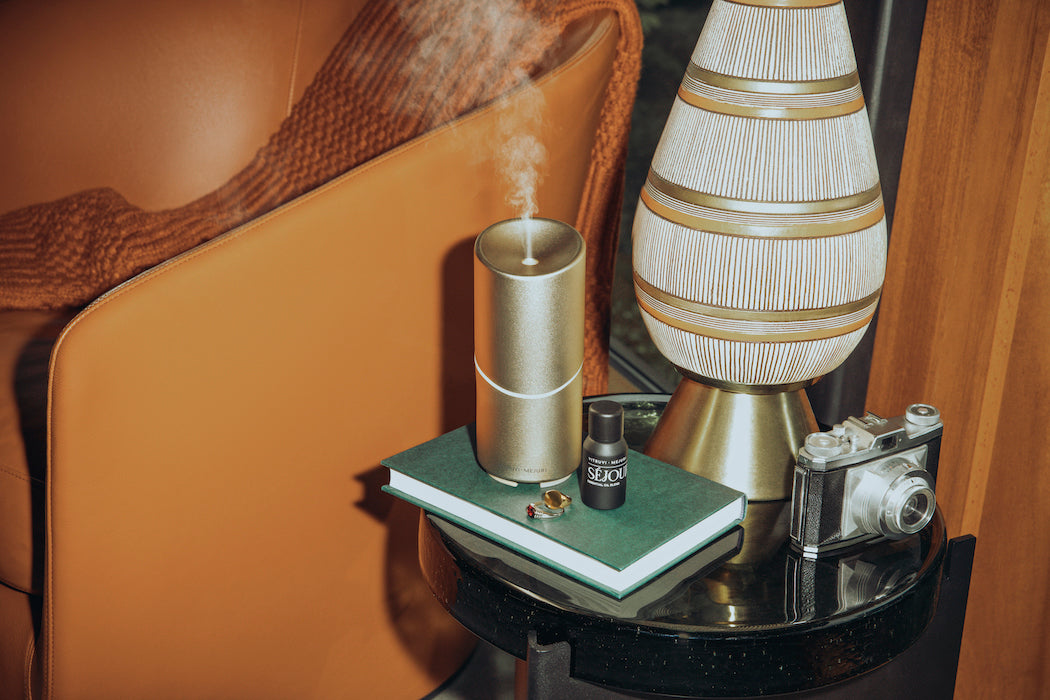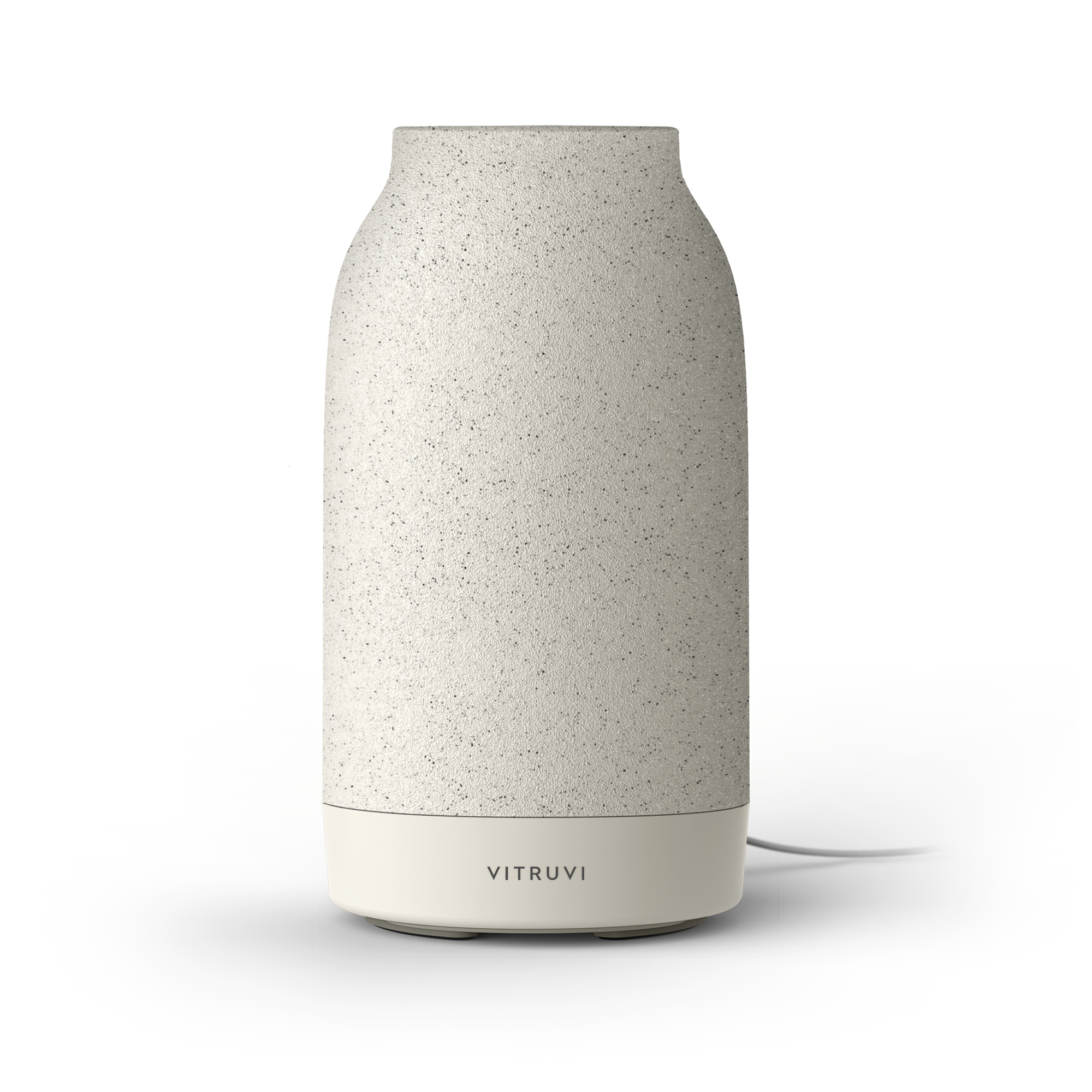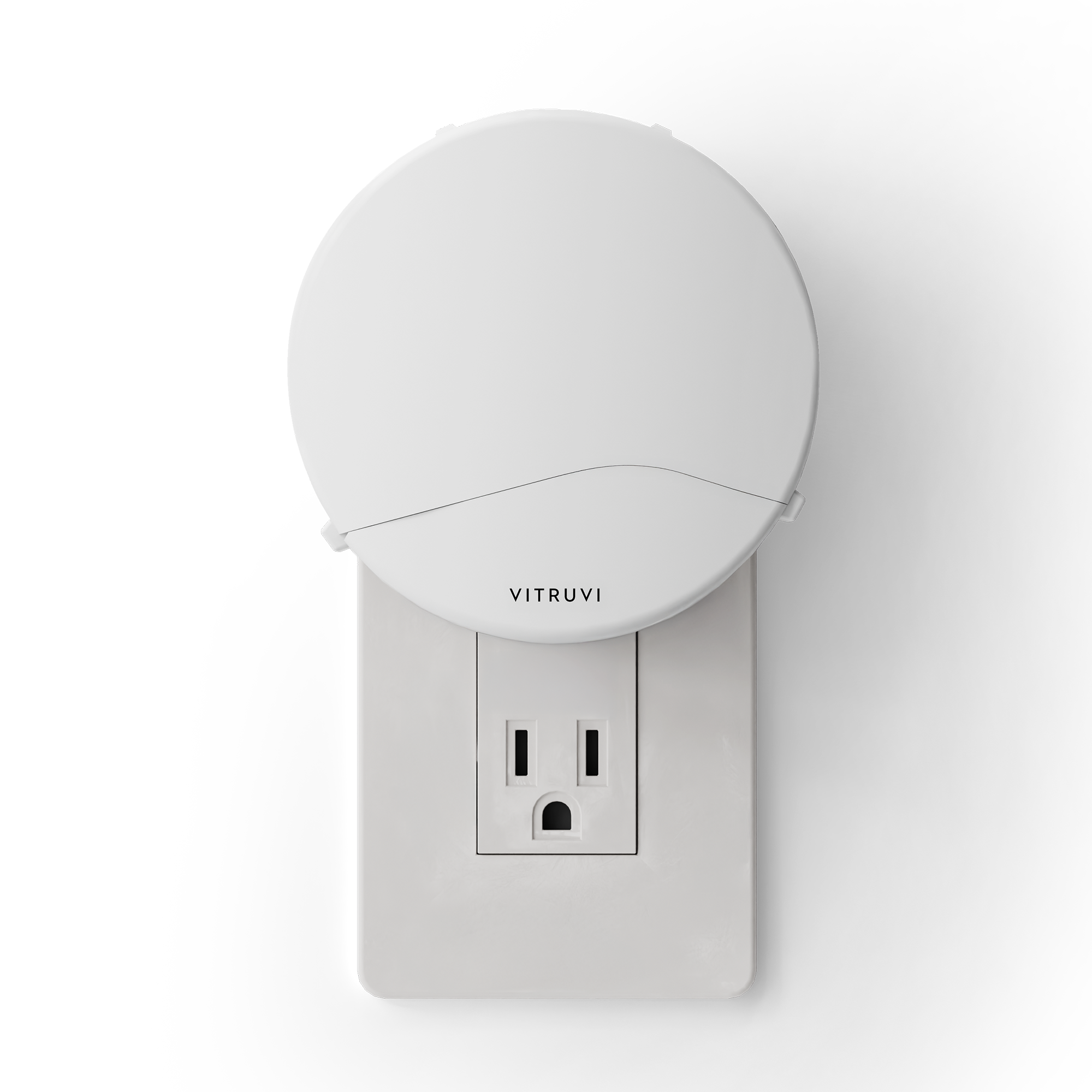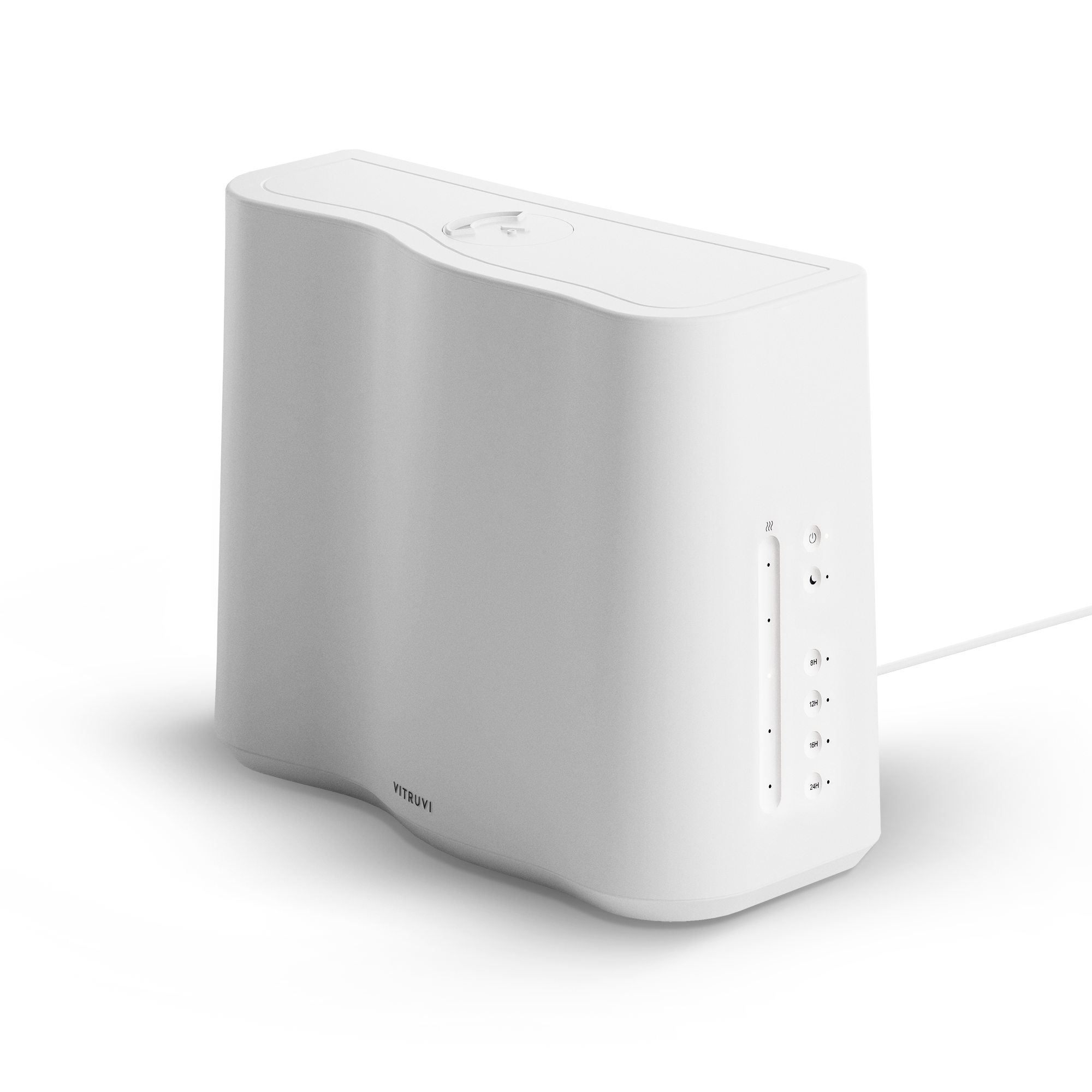When Anna Heyd, Vivian McCormick, and Oana Papuc were in China checking out a manufacturer for their business idea, they holed up in their Airbnb and wrote out a set of founder’s vows.
“We know what pushes each other’s buttons,” McCormick says. “We know how to get at each other, so how do we make sure that this business does not tank the thing that we came into it with, which was our friendship?” Those vows laid the foundation for the way they run their Vancouver-based direct-to-consumer brand Flax Sleep, the line of linen bedding that they founded in 2017.
Easily described as the best of friends, the three women make sure to preserve their personal relationships through streamlined avenues of communication. “We have a Slack channel for work, how to get things done for our business,” says Heyd. “And then a group text for friendship.” It seems to be working well for them, as their company is growing at a steady pace. With beautiful, luxurious textures in an array of soothing neutrals, Flax fills a hole in the market for high-end linen bedding at an accessible price. The trio also runs Lady Business Summit, a Vancouver networking and learning event for women entrepreneurs. Over coffee and tea Vancouver’s Bel Cafe—where Heyd ran the show before leaving to focus on Flax—they discuss friendship, entrepreneurship, and, of course, sleep.
So how did the three of you meet?
McCormick: We altogether met here. We [Papuc and herself, who met in law school] used to come in for lunch and dream about what else we could do other than being lawyers. And Anna was always our consummate host.
Papuc: And eventually we started inviting ourselves to Anna’s house for fun things like craft nights and nice dinners.
McCormick: We started making sourdough together.
Heyd: Our first group chat was around our sourdough accomplishments, or fails I suppose. And then I got a new mattress and a new bed frame and needed new bedding, and had trouble finding what I was looking for—especially from a Canadian-based company. I looked online and I went to department stores, and then I messaged these ladies and was like, “I think we need to start a linen bedding company.”
McCormick: This wasn’t the first thing that we thought about doing. We actually used to sit here and brainstorm all the time.
Heyd: Which is how I knew if I brought them the right idea they’d be on board. Because I brought them a few misses.
McCormick: We hard-passed on a lot of things.
Like what?
Heyd: One was called Lumberjacked and it was a fitness craze where you chop wood to get fit. And then the side-business is a wood-fired pizza/flatbread restaurant.
McCormick: So that one was definitely a no. And a lot of the other ones were like, “How’s that going to make money?”
Heyd: An arcade bar.
Papuc: Too hard on the permits! So we did this thing instead. It’s not been easier than Lumberjacked; maybe even a touch harder.
McCormick: Some days I actually would like to take out my aggression on chopping wood.
Papuc: To all the readers, please do not scoop our Lumberjacked idea.
McCormick: I’m pretty confident this [Flax] is not our last thing.
Papuc: Just last month I had to get on the phone with Vivian and tell her we’re not going to rent a 10,000-square-foot space for another idea. Yet.
Heyd: Because I’m like, “Yeah! Yeah!”
Papuc: Basically I’m your not-so-fun aunt, if you will, that is here to tell you that you cannot do all your things.
McCormick: I call it the brakes and the gas. She’s the brakes [Papuc] and she’s the gas [Heyd].
Heyd: And engine [McCormick].
McCormick: I don’t know... I’m the oil. Could turn into a giant fire at any time.
Between all your jobs and commitments and ideas, how do you deal with burnout?
McCormick: Luckily for us, I would think that it’s kind of gone around the circle. When one of us is really fried, the other two kind of step up and help through that.
Papuc: In terms of actual burnout, I think as long as you still get excited about it and it’s still fun, it’s still something to hang onto. It’s not drudgery, it’s not dread. We’ve all had lots of jobs and those jobs came with various states of dread, and I have yet to feel that dread with this, regardless of how stressful or busy it’s gotten. And I think that’s a good measure of the fact that we should still do it.
McCormick: I really don’t think any one of us on our own would have pushed this over the line. We got a hold of this idea, we got super excited about it, we started talking to each other 24/7 about it. Without that, I think it would have been really different.
Papuc: I don’t think it was a solo venture ever. I think even any combination of two out of three still wouldn’t get there. We need all three. At all times.
How is Flax contributing from a sustainability perspective?
Heyd: Linen lasts longer than other textiles, cotton being the most common. In the research I’d done about linen, the fact that it was a longer-lasting fibre drew me to it. Textile waste and fast fashion are things I don’t participate in, so why was I doing that with home goods? Could I find stuff that would last longer? Linen seemed like the answer to that. I’m also a hot sleeper, and linen sleeps cool. So those were the two things. And I think further to environmental sustainability, the sustainability of our community is also something that’s really important to us. We have a 60-night return policy; it’s hard to buy sheets online without seeing or feeling them, so we offer 60-day returns. When sheets get returned—which doesn’t happen that often, but when it does, they get donated to Atira Women’s Resource Society in the Downtown Eastside for women who are transitioning out of shelters into their own homes.
Papuc: We’ve upcycled stuff in partnership with Craftworks, which is a local not-for-profit that helps people with disabilities learn sewing skills. And we’re planning to continue that aspect.
McCormick: Consumers are really smart and they’re really voting with their dollars. If you’re really doing the bare minimum, people will look for something else. I don’t think it’s bad that everyone’s standards are coming up. So we just want to keep up with and exceed those standards to feel good about what we do.
Bedding, of course, is all about sleep. What are some sleep rituals you each have?
McCormick: I can literally fall asleep anywhere. I do fall asleep really easily, sometimes with my phone in my hand which I know is the worst. For me my ritual is having, frankly, our bedding. And having a good mattress. A good mattress was the first one; I never thought about what was between the mattress and me.
Papuc: I have a ton of children, so sleep is precious at our house. My stepson is nine, and our daughters are five and 10-and-a-half months. I always wash my face now, because I’m a grownup. I double cleanse, I use a toner. And then I put eye cream on because I’m not getting any younger. I have a bath most nights, because I don’t get to shower in the morning before I go to work—so I do my hair the night before. And if we’re being very honest, I usually fall asleep with my iPad in my face while binge-watching something on Netflix; but that takes about seven minutes from the time I press play to the time I fall asleep.
Heyd: I gua sha. And I have a bath a lot of nights, and there’s always an essential oil blend of some sort. I double cleanse and use multiple serums and put on a mask. The last vitruvi product that I got was the Geranium Essential Oil; I use a lot of the essential oils. Geranium, Lavender. And then my gua sha is from vitruvi.
What does the future look like for Flax?
McCormick: The goal for 2020 is to keep growing and to see how much further we can take it. It’s going to be fun for us, but it also takes us out of our comfort zone, which is where we like to live sometimes.
Papuc: 2020 is about being uncomfortable: the kind of leaps you have to take, because eventually we are going into linen home domination.
This interview has been edited and condensed.

